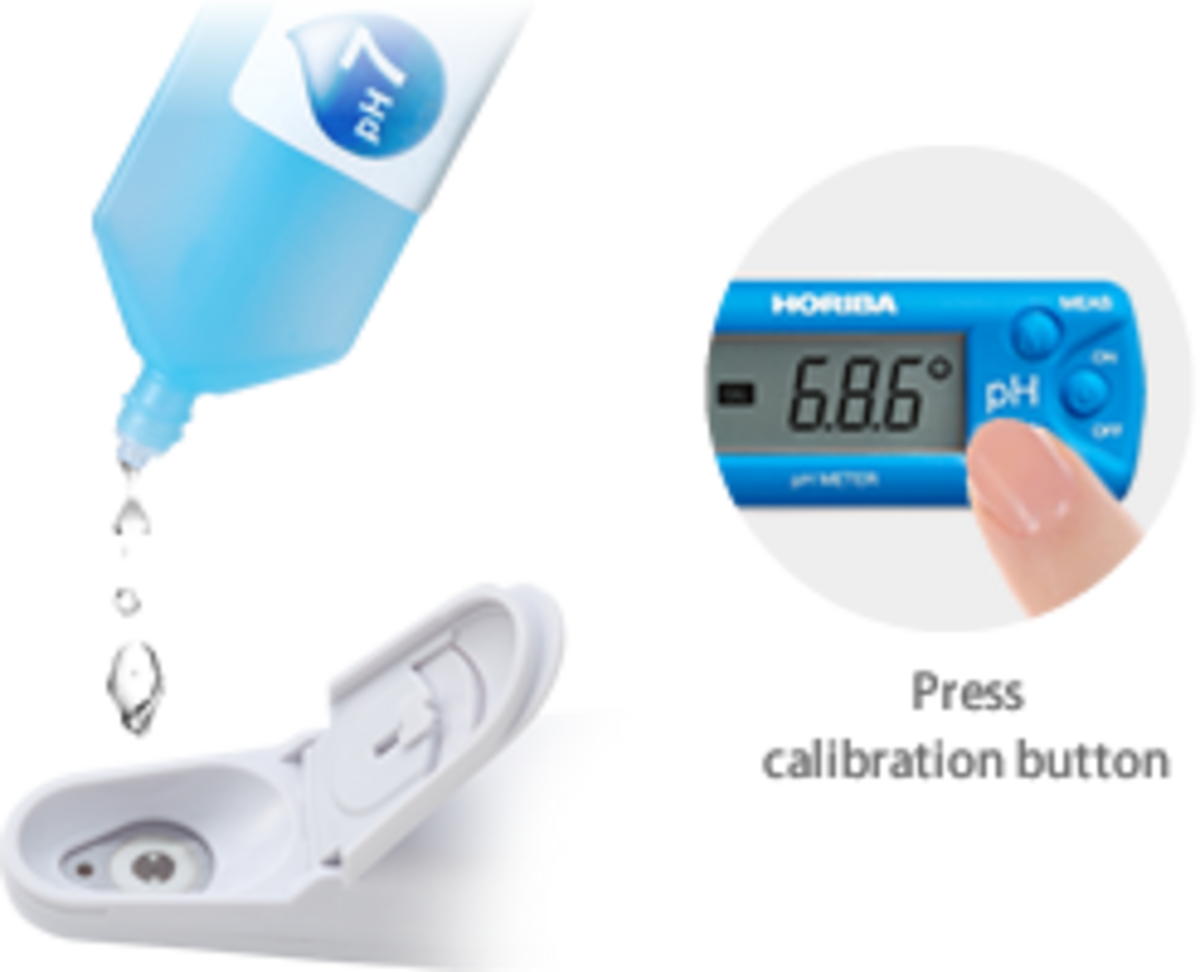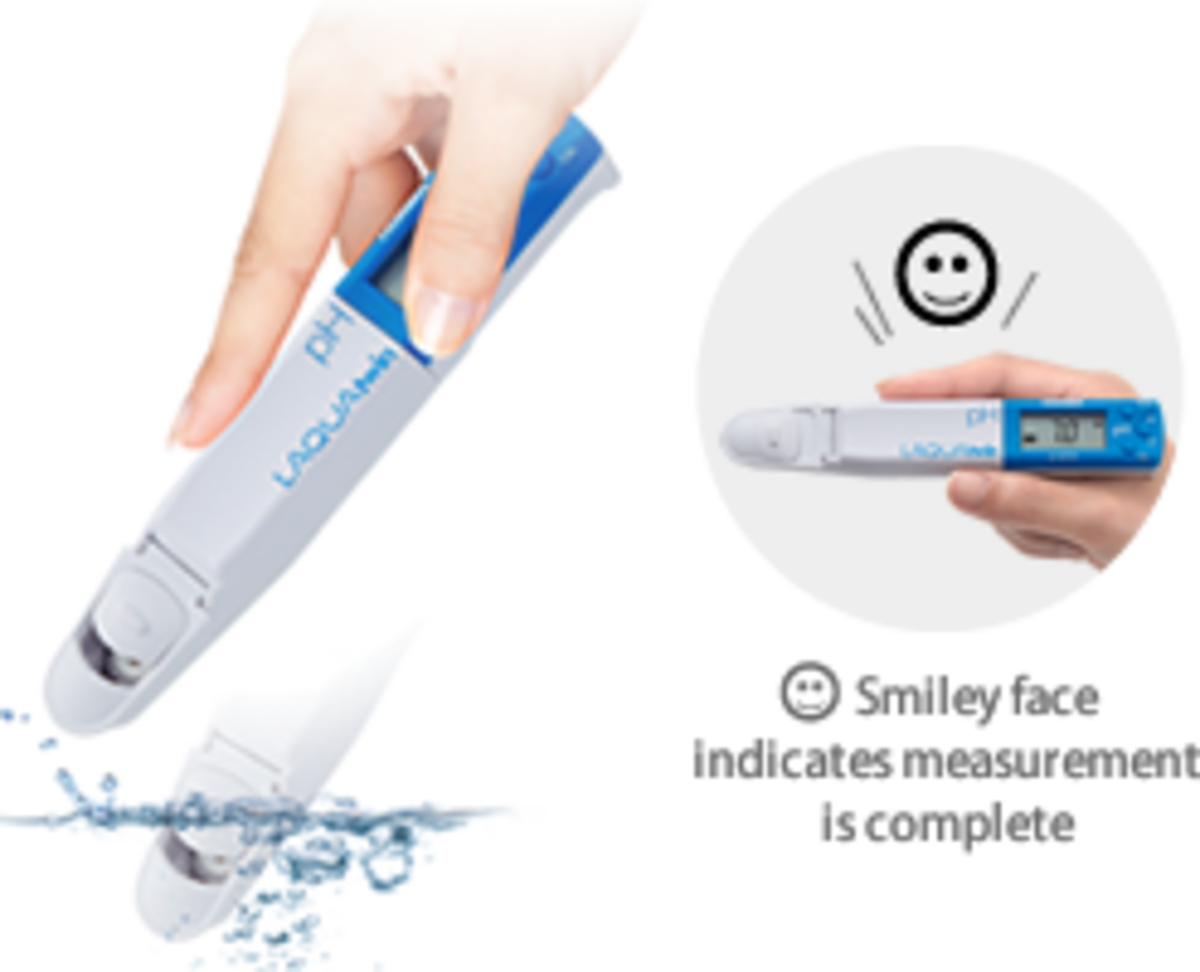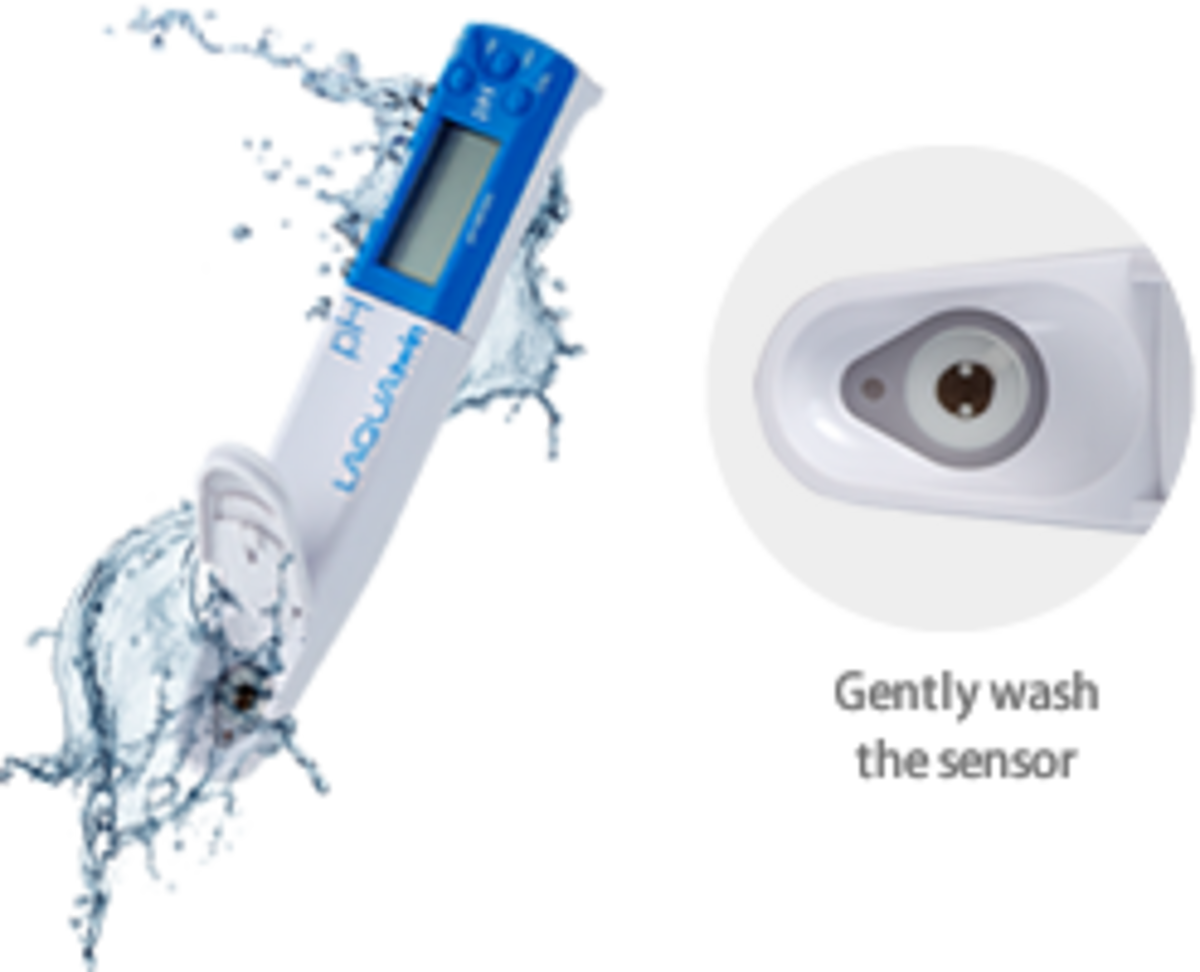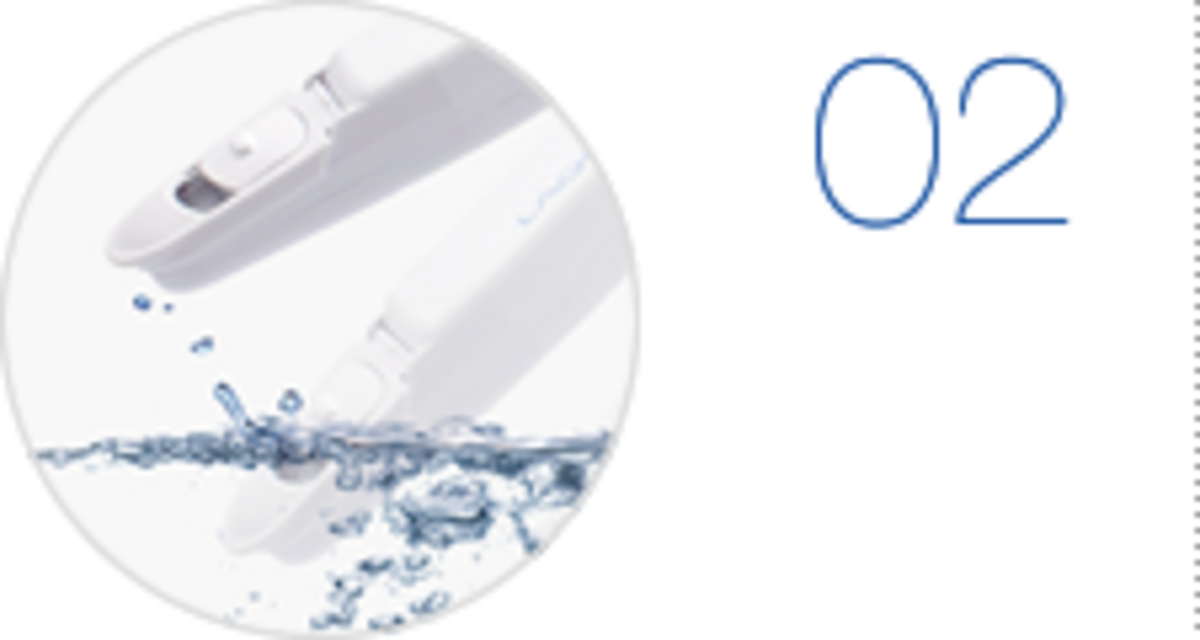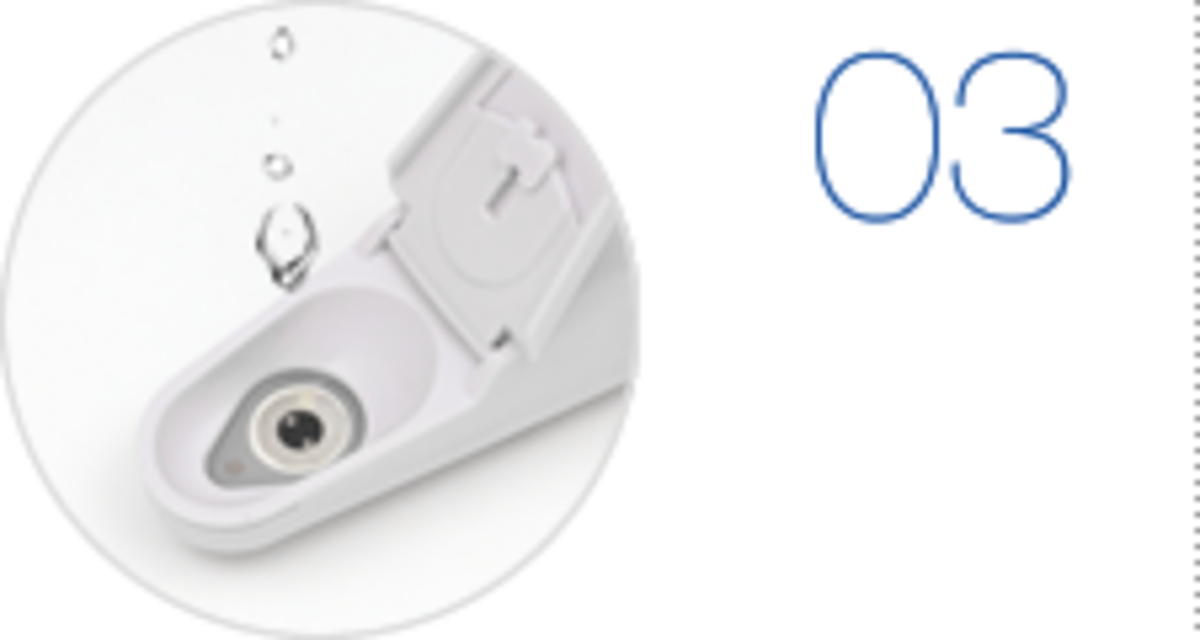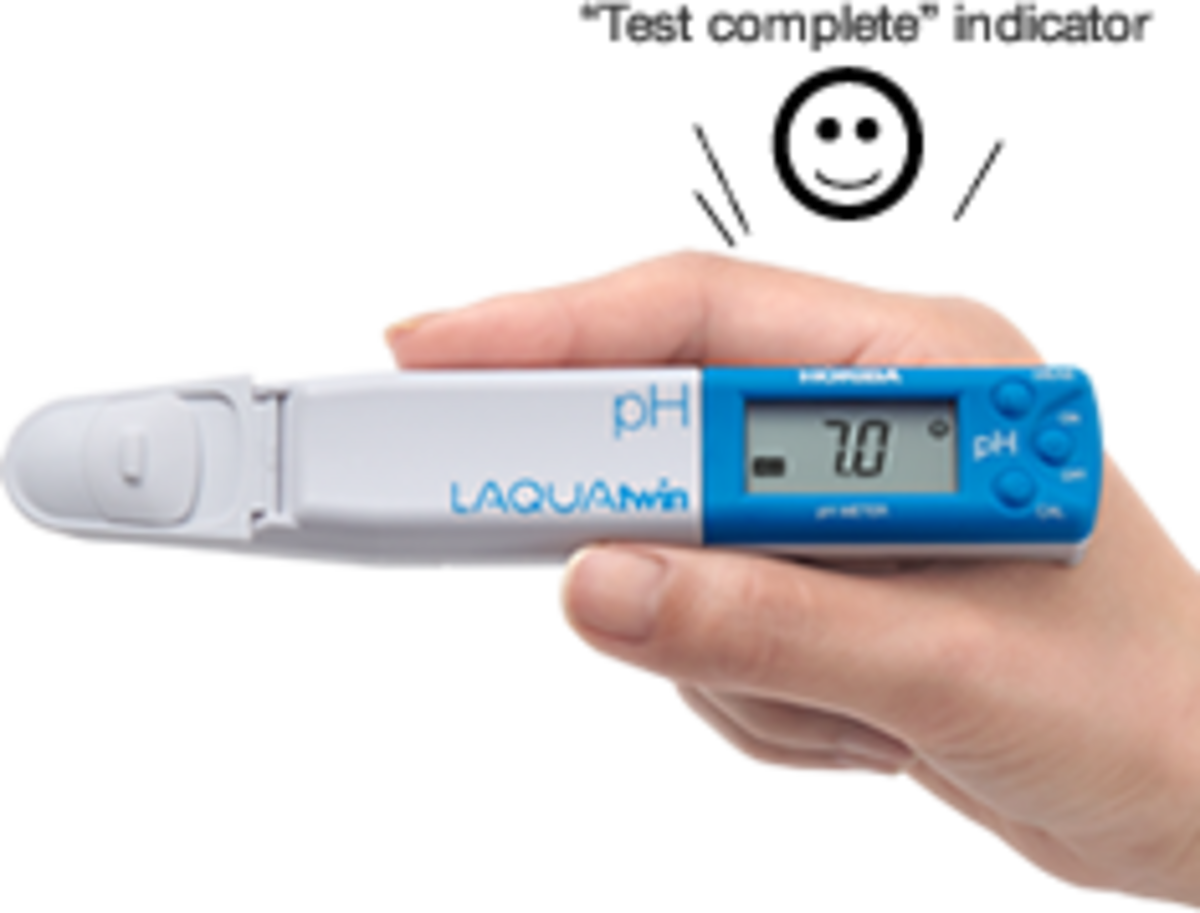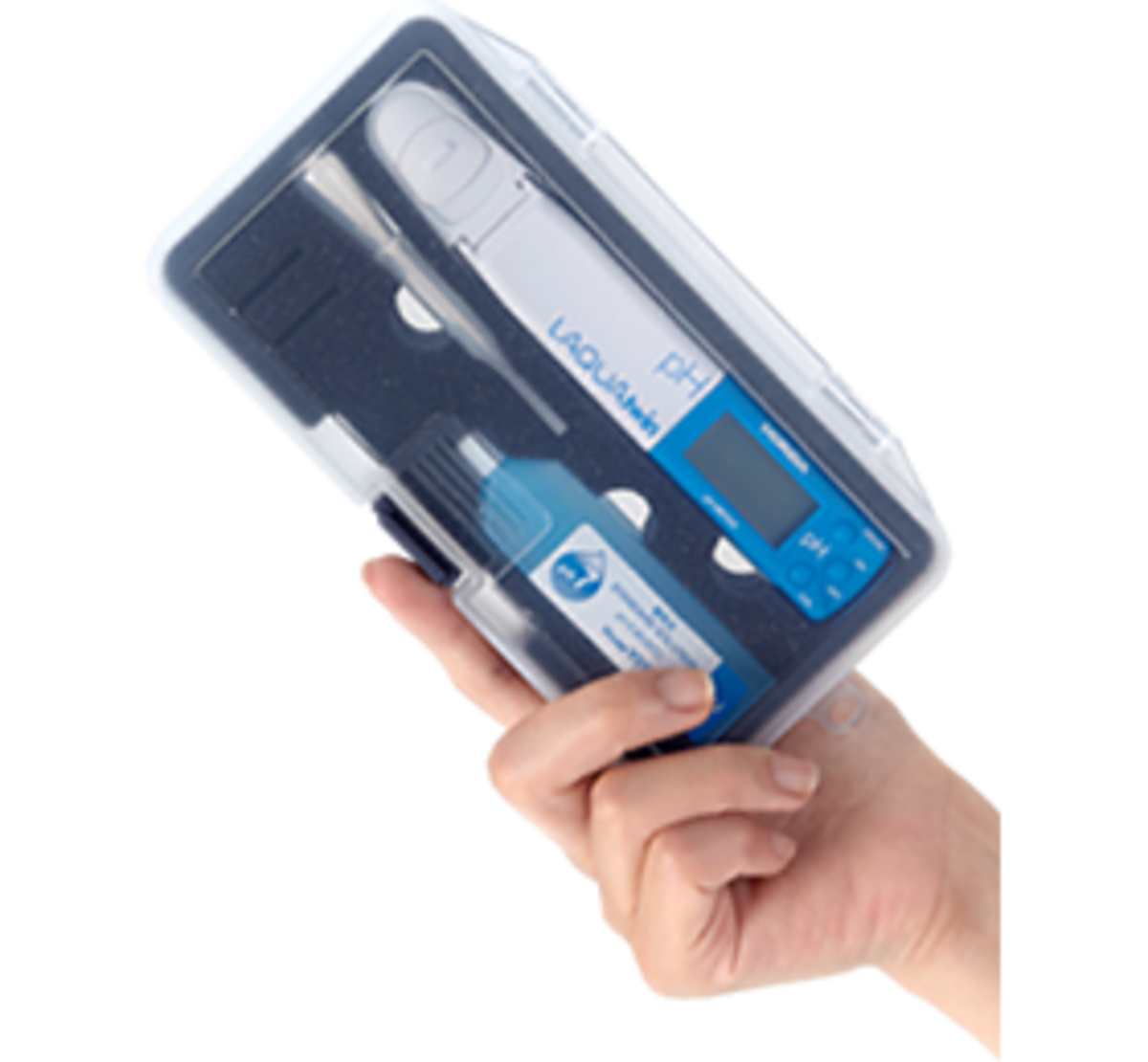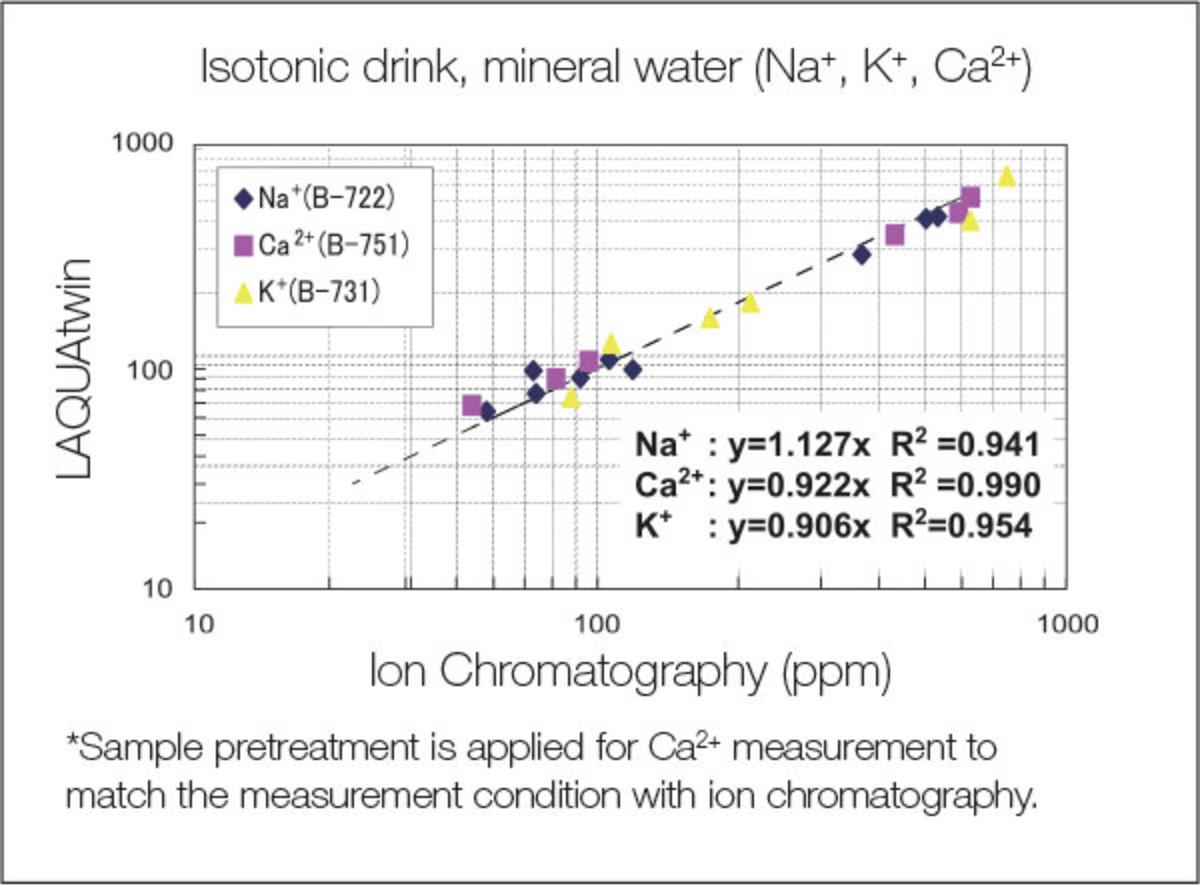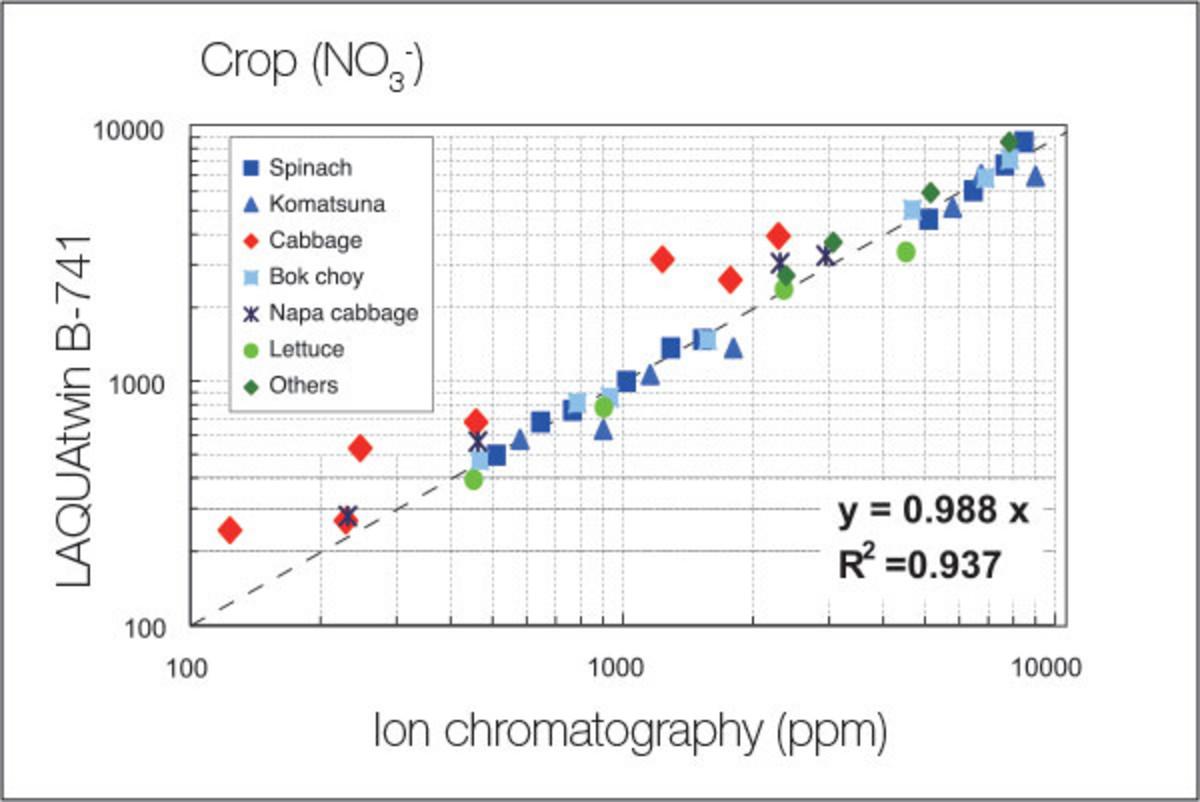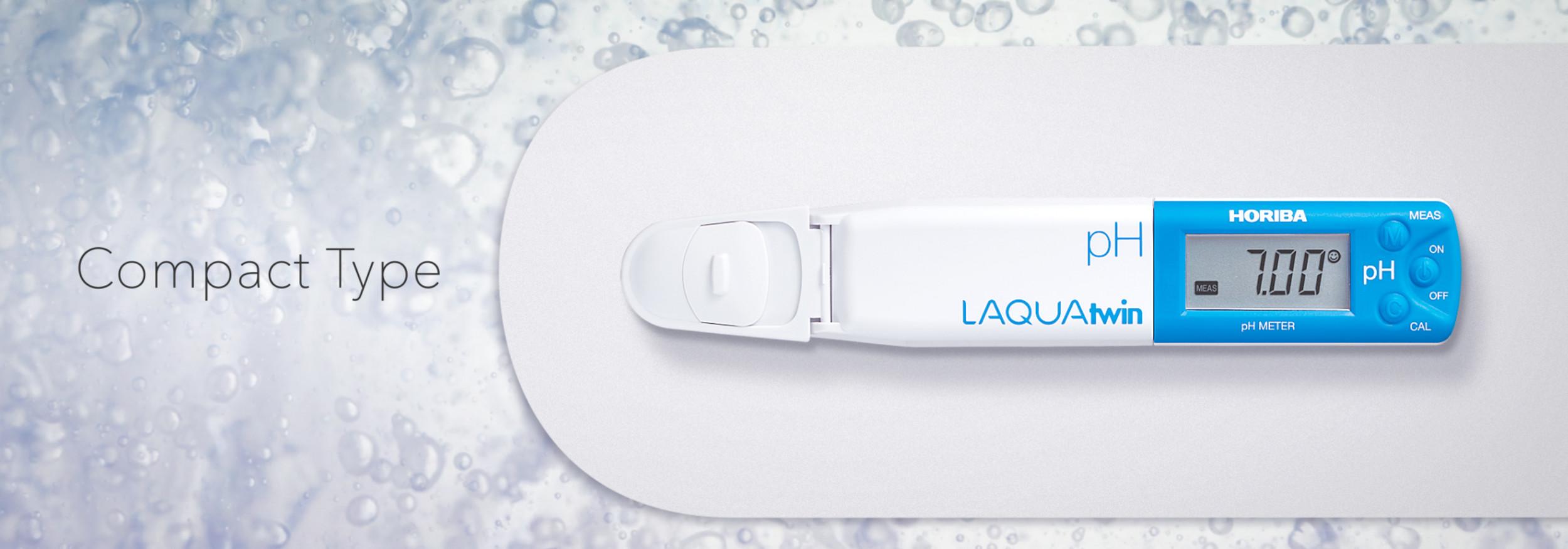
Follow simple, good testing procedures for accurate and dependable results:
Always ensure the sensor is clean before calibrating.
If not, clean thoroughly with water (don’t worry, LAQUAtwin meters are completely waterproof!)
Place some standard solution on the sensor and press the calibration button. Once the smiley face appears indicating that calibration is complete, wash off the standard solution with water and dry with a clean, soft tissue.
LAQUAtwin meters only need a tiny amount of sample - so no beaker is necessary.
Fill the sensor with the sample and when the smiley face appears, the measurement is complete.
Clean the sensor thoroughly with water ready for the next test. When the sensor is nearing the end of its usable lifetime, it can be replaced;* you don’t need to replace the meter.
* Sensors will need to be replaced after approx.
1500 measurements or when calibration cannot be completed. Sensors are sold separately and are easily removed and replaced
Only the LAQUAtwin range allows you to be this flexible! Choose the best method according to your sample, your situation and your needs.
*1 B-771 (conductivity) cannot be tested in solids or powders.
When you’re in the lab, you can test the sample in a beaker. Ensure the sensor guard sliding cap is open.
Use as a scoop to test water, for example from a river.
LAQUAtwin meters can measure sample volumes as low as 0.05 mL*2. Place a drop of the sample onto the sensor with a pipette.
*2 Using the HORIBA sampling sheet, volumes down to 0.05 mL can be tested (except for conductivity measurements).
Foods containing some moisture can be tested by placing a small piece directly onto the sensor.
LAQUAtwin meters can also test dry powders.
Simply place the powder sample onto the sensor, and drop on your defined volume of pure water.
To test sheets of paper and textiles, cut up the sample into small pieces and place directly onto the sensor.
Drop on your defined volume of pure water.
Testing has never been easier!
LAQUAtwin meters have been developed using 60 years of HORIBA know-how to give you the highest quality technology that can be used anywhere and at any time. And they’re so simple to use that you won’t need any training!
Calibrate and measure at the touch of a button — the smiley face will tell you when the result can be read.
Hassle-free automatic calibration with a few drops of standard solution reassures you of your measurement accuracy. Two-point calibration is also possible.*1
*1 Except for B-711
Employing the same test principle as standard laboratory electrodes, the LAQUAtwin packs all components*1 into a flat sensor that’s less than 1mm thick. Tests liquids in trace volumes, and can also be used for solids, powders, and paper/materials (containing moisture).*2
*1 pH-11 / 22 / 33 meters incorporate a glass membrane and a reference electrode. EC-11 / 22 / 33 conductivity meters incorporate an electrical conductivity cell. Ion meters and the sodium salt meter incorporate an ion membrane and reference electrode.
*2 EC-11 / 22 / 33 (conductivity meters do not work with solids, powders or paper/materials.
LAQUAtwin: the only meters with flat sensor technology.
HORIBA’s highly-sensitive, flat sensor technology opens up new possibilities for sampling and sample types. Only a small amount of sample is required, so you can easily sample in situ without the need for beakers or other labware.
Sensors are easily replaced as required.
Measure even smaller samples with the LAQUAtwin sampling sheet.*2
The sampling sheet allows trace volumes to be analyzed. For example, you can even measure the pH of human skin by wiping with a sampling sheet soaked in pure water, and placing it on the sensor.
*2 Using the HORIBA sampling sheet, volumes down to 0.05 mL can betested (except for conductivity measurements).
Carry case comes as standard for handy portability.
The compact carry case contains everything you need for your measurements, including the standard solution and sampling sheets.
LAQUAtwin is IP67 rated.
The meter and sensor are fully waterproof*3 and dustproof, so you can take it anywhere.
*3 Will withstand immersion for 30 minutes at 1 m. Not suitable for underwater use.
Do you have any questions or requests? Use this form to contact our specialists.
HORIBA Advanced Techno, Co., Ltd.
31, Miyanonishi-cho, Kisshoin
Minami-ku Kyoto 601-8306 Japan
Tel: +(81) 75 321 7184
Fax: +(81) 75 321 7291
HORIBA Instruments (Singapore) Pte Ltd.
163 Kallang Way, #08-14,
Mapletree Hi-Tech Park @ Kallang Way,
Singapore 349256
Tel: (65) 6745-8300
Email: laqua(at)horiba.com
HORIBA UK Limited Northampton Office
Kyoto Close,Summerhouse Road,
Moulton Park
Northampton NN3 6FL UK
Tel: +(44) 1604 542 600
Fax: +(44) 1604 542 699
Mail: waterquality(at)horiba.com
HORIBA Instruments Incorporated Head Office
9755 Research Drive
Irvine California 92618 USA
Tel: +1 800 446 7422
Fax: +1 949 468 1790
Mail: labinfo(at)horiba.com
You might also like to know...
